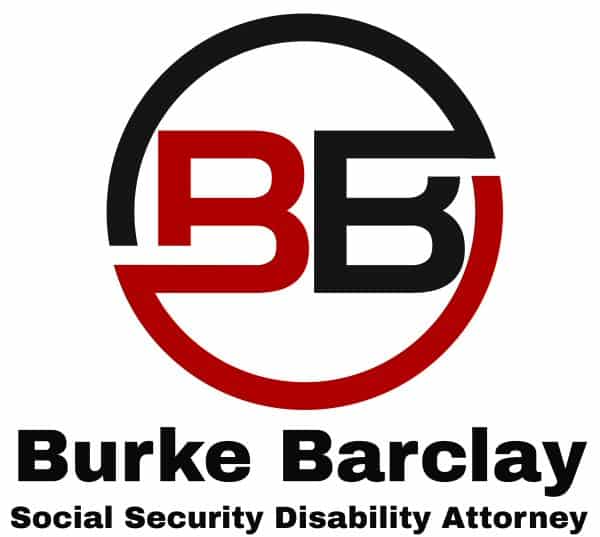Should I Appeal My Denial For SSD Benefits?
Should I Appeal My Denial For SSD Benefits?
If you were denied Social Security disability benefits, should you appeal?
The most basic answer to this is: -Yes, you should appeal your denial at any level. But, there are some things to keep in mind as well.
Here are some things you should think about:
1. When you file for Social Security disability benefits, you allege a date in which you became disabled. If you do not appeal your denial within 60 days, you give up all that time to collect your back pay if the case is finally decided in your favor. If you do not appeal and you start a new application, you cannot go back to your original date of disability, but must use a far sooner date, which means you lose out on all the money you would have received if you were found disabled the first time.
If you appeal and continue to appeal your denial, you are earning months and even years of back pay, of which you can be compensated if your case is finally decided in your favor.
2. The Social Security Administration at all levels makes mistakes in determining whether you fulfill the requirements for being disabled. Social Security disability law is quite vast and complicated. It’s difficult to remember each and every ruling and rule of law, and many decisions are made without keeping some of those rules in mind.
This is especially true at the hearing level. If an Administrative Law Judge (ALJ) decides you are not disabled, many times his or her reasoning for denying you benefits is flawed. It’s always best to appeal a denial and allow the Appeals Council or even a federal court to review the decision.
3. Where are you in the process when you receive your first, second, and even third denial? Approximately 60 percent of all cases are denied at the initial application and reconsideration phase. Most people who do apply for Social Security disability benefits are denied. At the hearing level, it is about a 45 percent chance you will win your case. If you appeal your case further, there is even a smaller percentage of cases which are successful at the Appeals Council level.
However, once your case moves to federal district court, your chances of approval actually increase to about 50 percent. Therefore, depending on where your case is in the system, your chances of success may either be increasing or decreasing. That is why it is so important to keep in mind your chances may increase if you appeal your denial to the next level.
4. You need to understand what it really means to be disabled according to the Social Security Administration. Everyone who applies for benefits has something at least wrong with them mentally or physically (or a combination of both). But, just because you have something mentally or physically wrong with you, this does not mean you are disabled. To be disabled, there have to be no jobs you are capable of performing even despite your limitations.
At its essence, what this means is that you are not capable of even performing some sit-down job full-time which is unskilled. You really need to assess your current situation and ask yourself if you are capable of performing some type of job like this. If you can, stop attempting to receive Social Security disability benefits and go back to work. If you can’t, then consider appealing your denial to keep your case moving forward.
5. Ask yourself if you really have enough time to continue to wait on a decision on your case. If you keep appealing your denial, you could be looking at years before your case is finally decided (hopefully in your favor). Do you have the resources to continue not working and waiting on decisions? If you do, then keep going. If you can’t, you may want to consider going back to work.
6. How old are you? If you are a younger person, your chances of success are not near as good as if you were 50 years-old or older. Social Security’s rules favor those who are older, especially persons over the age of 55. If you are young by Social Security’s standards, then you may want to consider not moving forward with your case. If you are over the age of 55, then you may want to consider keeping your appeal rights alive. At some point, the rules will usually find in your favor.
7. Assess what is really keeping you from working. Persons with impairments that can be evaluated through blood, x-rays, MRI’s, or som other type of testing, have a better chance of winning disability benefits. If you have a mental condition, fibromyalgia, lupus, chronic fatigue syndrome, etc., these are the kinds of impairments which are hard to evaluate through testing.
If your medical records simply consist of subjective impairments you tell your doctor, this makes it even harder to receive disability benefits because the Social Security Administration deems them unreliable. Therefore, think back to your medical records and see if there are test results. If there are, review them and see what they say. If the test results reveal severe or significant impairments, then you may want to appeal your denial.
8. Where do you live? The Social Security Administration actually uses state agencies in every state to help make a determination as to whether a person is disabled. For example, if you live in Texas, it is going to be more difficult to receive benefits than if you lived in a more liberal state.
This is also true at the hearing level, where many of the ALJ’s are from the state in which they are currently sitting on the bench. Further, federal circuits tend to be more liberal or conservative, and many of the federal district and circuit courts interpret Social Security law differently. If you are living in a more liberal state, then you may have a better chance at receiving disability benefits.
9. Can you still work a little bit while at the same time claiming you are disabled? This section is very complicated, but you are able to work at a job part-time and still claim you are unable to work full-time and deserve disability benefits. But, you must keep your gross income under a certain amount or you will be denied because you are making too much money.
10. Be completely honest with yourself and ask whether you really are unable to work. If you really cannot work due to physical or mental limitation(s), then throw everything else out the window and keep pushing forward. You really have no other choice.
We help claimants fighting for their Social Security disability benefits throughout Texas and California. Please always feel free to contact our office at: (888) 780-9125.
You Need an Experienced Social Security Disability Lawyer
We represent claimants fighting for their Social Security disability benefits throughout Texas and California. Contact the Law Office of Burke Barclay for a highly experienced Social Security Disability Lawyer in Dallas, Texas
"Experienced Social Security Disability Lawyer representing clients throughout the United States who either need to initially file for their Social Security disability benefits or have been denied at one of the various stages throughout the process to give them the best chances of success."
Business Address
The Law Office of Burke Barclay
3838 Oak Lawn Ave.
Suite 1000
Dallas, TX 75219
Business Hours
Monday - Friday
8:00 AM - 5:00 PM





